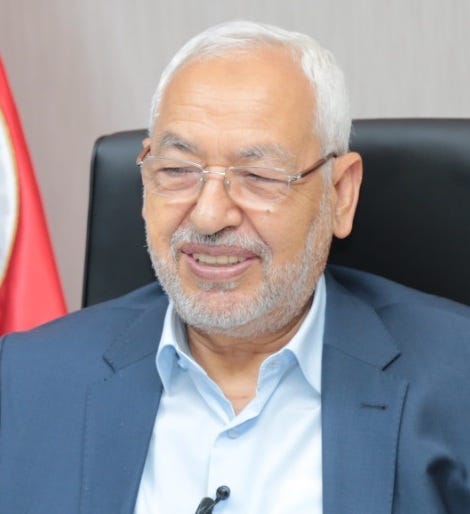Religious Anti-Liberalisms
Catholic, Islamic, Confucian
All the Kingdoms of the World is not only about Catholic integralism. I also use integralism to analyze other religious anti-liberalisms. This ideological class may be unfamiliar to you, so here I outline what I mean.
Religious anti-liberal doctrines favor a strong coercive establishment of religion. The state must recognize true faith. It must also use law and policy to help people enjoy spiritual goods. These doctrines also reject liberal theories of political legitimacy. The state receives some of its legitimacy from a higher power (God, Allah, Heaven, etc.). The state must recognize its divine authority and fulfill its religious mission.
These views are anti-liberal because they reject the equal treatment of true and false religions. (As the Catholic anti-liberals say, “Error has no rights.”). They oppose universal religious toleration, at least in principle (they may tolerate false religions for pragmatic reasons). The liberal tradition has not always opposed religious establishment of any kind. But it has, in all its forms, favored the elimination of coercive establishment.
Religion and Its Goods
Following philosopher Robert Audi, I treat “religion” as a cluster concept. Religions often but do not always include:
Appropriately internalized belief in one or more supernatural beings (gods);
Observance of a distinction between sacred and profane objects;
Ritual acts focused on those objects;
A moral code believed to be sanctioned by the god(s);
Religious feelings (awe, mystery, etc.) that tend to be aroused by (2) and (3);
Prayer and other communicative forms concerning the god(s);
A worldview according the individual a significant place in the universe;
A more or less comprehensive organization of life based on the worldview;
A social organization bound together by (1)–(8).
I define “religious goods” as goods that help establish union or harmony with the divine. In Catholicism, these include the sacraments, the physical means of grace, like the Eucharist, and the associated theological virtues of faith, hope, and love. In Confucianism, the virtues help one imitate and harmonize with Heaven (Tian), and harmonization is a chief religious good.
Strong Coercive Establishment
In a religious anti-liberal regime, the state does not directly promote spiritual goods. It can produce healthcare, but not faith. The anti-liberal state instead creates conditions where people can readily secure religious goods. For instance, the state will suppress temptations to false religion. It might ban heretical books.
Today, religious establishment is often weak. Many nation-states identify themselves with a single religion and endorse one religion as correct. Some Islamic states go much further. But, generally, a religious establishment does not use coercion to suppress false religion.
A strong coercive establishment suppresses aspects of false religion with coercion. They might say, execute apostates.
Divine Legitimacy
Religious anti-liberalisms hold that political authority is divine. Integralists claim, for instance, that God authorizes states and the church both directly. God also grants the church indirect authority over the state to direct the state to support its religious ends.
Islamic regimes acknowledge the divine will as the source of political legitimacy. God wills the Shariah and authorizes the caliph. The caliph then wields divine authority within the bounds of Shariah law.
Confucian legitimacy comes from holding the mandate of Heaven. The mandate comes from virtuous rule, as Confucians understand the virtues (benevolence or ren (仁), righteousness or yi (义), propriety or li (理), wisdom or zhi (智) and fidelity or xin (信)).
All three anti-liberalisms allow for democratic government. But the people do not have original authority to rule but borrow it from the divine.
The Leading Anti-Liberal Theorists: Pink, Jiang, and Ghannouchi
AKW examines three religious anti-liberalisms. These include Catholic integralism, moderate Sunni Islamism, and Chinese Confucianism. I analyze these doctrines by way of their most thoughtful and reasonable representatives: Thomas Pink, Jiang Qing, and Rached Ghannouchi.



Thomas Pink is the father of the Catholic integralist revival (though with concerns about American integralism). He’s one of the finest philosophical historians in the world (see his translation of Suarez’s De Legibus here). Jiang Qing is the leading Confucian establishmentarian. Everyone in Confucian political circles knows Jiang’s work. He currently runs a private academy in China, far from Chinese politics.
Rached Ghannouchi is the most prominent. He led Tunisia’s Assembly until quite recently, as he just became a political prisoner in his own country. Ghannouchi is a moderate Islamist thinker (who has made Tunisia more liberal than before).
Each figure publishes widely in defense of their doctrines, and you can find much of them here (for Pink), here (for Jiang), and here (for Ghannouchi).
All three figures are much less anti-liberal than one might think. Pink, for instance, is quite keen on British legal and constitutional institutions and favors a republican form of government. Pink also stresses religious liberty for the unbaptized. He has steadfastly avoided adopting the worrisome policy suggestions of other integralists.
Jiang Qing proposes a Confucian tricameral legislature. Its highest house is the House of Ru, comprised of Confucian stages/gentlemen. The authority of the House of Ru comes straight from Tian. But Tian also authorizes two other houses—of culture and the people—to balance out the errors to which the House of Ru is prone.
Rached Ghannouchi argues that the umma—the Muslim people as a whole—hold the office of caliph. They then appoint a government. For Ghannouchi, therefore, Islamism must be democratic. Further, he stresses that there is no compulsion in religion. No one can be forced into Islam. He also thinks that non-Muslims can form parties and have representation in parliament. That said, non-Muslims cannot become heads of state. Nor can non-Muslim parties rule outside of a Muslim majority coalition.
I disagree with them, but they might improve their nations in various ways. Catholic integralism would worsen Pink’s Britain overall. Still, he wouldn’t press for it unless the British people became almost entirely Catholic. Jiang’s Confucianism beats the Chinese Communist Party, and Ghannouchi’s moderate democratic Islamism has already improved Tunisia.
Religious Anti-Liberalism
So, that’s what I mean by religious anti-liberalisms. They affirm a strong coercive establishment and the divine origin of political authority. These factors entitle the state to promote true religion and discourage false religion with force, if necessary.

